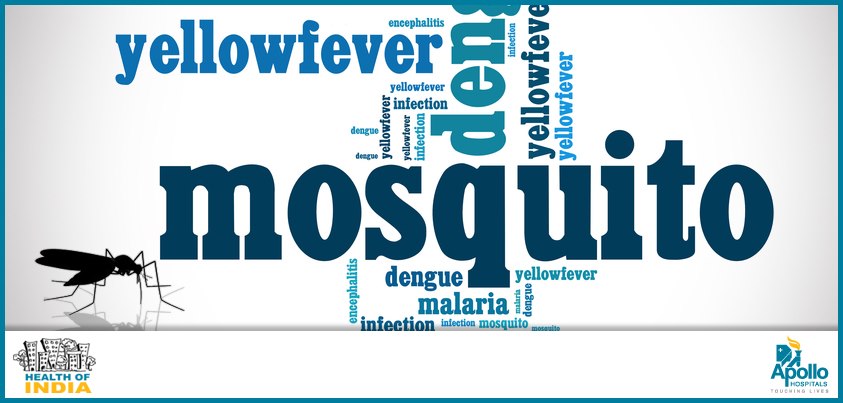Chikungunya is caused by a virus that is predominantly transmitted when an infected female mosquito, ‘Aedes Aegypti’, bites a human. This mosquito is commonly known as the ‘yellow fever mosquito’. Generally, Chikungunya is not considered to be contagious, however, in some rare cases, it can get transmitted through contact with an infected person’s blood. Because of its name, which contains the word ‘chicken’, there are several misconceptions about the disease. The most significant symptoms of chikungunya include fever and joint pain, which can be diagnosed by a blood test. Although the disease is rarely fatal, the effect of Chikungunya can be debilitating, severe, and long-lasting. An interesting fact about this disease is that it was once considered as a disease of the tropics and now, cases of chikungunya have been reported in more than one-quarter of the countries in the world.
Causes of Chikungunya
Known as CHIKV in medical terms, the chikungunya virus is spread by the bite of an infected female mosquito. Here, when the infected mosquito bites, i.e. feed on a human body, it potentially affects the person with CHIKV. The ‘Aedes Aegypti’ or the ‘yellow fever mosquito’, is a household container breeder and bites a person aggressively during the daytime. The reason for the increased population of the yellow fever mosquito is mainly attributed to the stagnating water in and around your homes, offices, schools, or other public places. Since, this mosquito breeds on stagnated water, causing a rapid spread of the virus, you need to make sure that you keep your surroundings clean.
Symptoms of Chikungunya
The incubation period of the chikungunya virus is 2-6 days. However, the symptoms may start appearing after four to seven days of being infected. The symptoms include –
- High fever i.e. up to 40-degree Celsius or 104-degree Fahrenheit, lasting for two days usually, and then ending abruptly.
- Joint pains that affect multiple joints.
- Viral rashes on the limbs or trunk.
- Non-specific viral symptoms like headaches or loss of appetite.
Treatment of Chikungunya
If you notice any of the symptoms that are mentioned above, you should immediately visit a doctor for a blood test. Though there are no antiviral drugs available exclusively for Chikungunya, your doctor would ask you to increase your intake of fluids, take adequate rest, and may prescribe some pain killers like paracetamol. Your doctor may also advise you to avoid aspirin. Also, if you notice any symptoms, you should get a blood test done immediately, which will isolate and confirm the presence of IgM and IgG antibodies.
Precautionary Measures to Help Prevent Chikungunya
Since the chikungunya virus is transmitted by mosquito bite, it can be prevented by taking precautionary measures which will help you keep mosquitoes at bay. Some of the best ways to ensure these are –
- Do not travel to areas where chikungunya outbreaks are common.
- Wear long-sleeved shirts and full pants to cover the maximum skin area.
- Start using a mosquito repellent cream on exposed skin. You can also use mosquito repellent roll-ons that can be applied to your clothes directly.
- Keep your surroundings clean. Make sure there are no sites of stagnating water where mosquitoes can breed. Change the water in your flowerpots regularly, and if you have the habit of storing water, cover the bucket, and don’t store the water for more than 48 hours.
- Fix a mesh on the windows and doors to keep the mosquitoes out.
People affected by the CHIKV virus should stay indoors and isolated under a mosquito net so they don’t come in touch with mosquitoes and so the further spread of the virus can be prevented.


